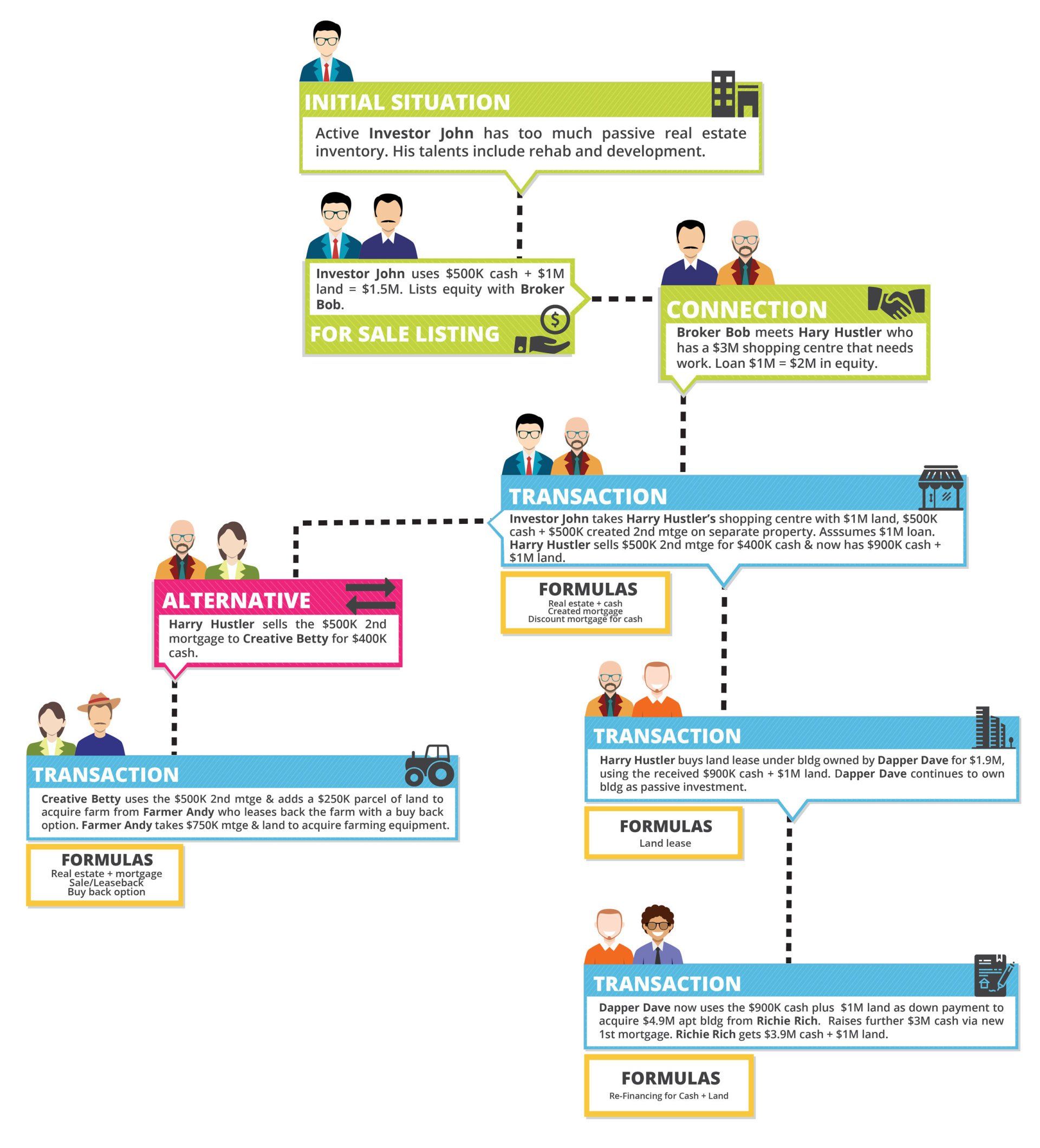



Fundamentally, the way to find alternative financing is to think “outside the box” of conventional approaches.
Let’s set the stage with two sample BORROWER situations.
A Seller/Borrower (“BORROWER”) owns a currently appraised $1,000,000 commercial land parcel, which is free and clear. In addition, the BORROWER has an opportunity to acquire another property, which has major upside, but needs $500,000 quickly to take advantage of the opportunity. The BORROWER’s institutional lender has responded that, at this time, their appetite is not for what is being offered as security. Other unconventional sources also offer little encouragement. Where does the BORROWER go?
The Borrower owns the same $1,000,000 appraised commercial land parcel. However, existing debt on the property is coming due and the Lender wishes to be paid back ASAP. The Borrower’s research of the indebted property shows major upside potential in a pre-determined period of time. Therefore, there is little interest in a quick sale at a wholesale price. The Borrower’s motivation is to simply restructure the financing.
The BORROWER, at this time, also wishes to have its financial statement adjusted.
The BORROWER and BUYER (“INVESTOR”) negotiate a “Safety First” transaction that would include INVESTOR’S required yield via BORROWER’s:
The INVESTOR negotiates a competitive rate of return through a highly secure position in the property. More importantly, if the BORROWER decides not to exercise the Buy-Back option, the INVESTOR gets a $1,000,000 property for $500,000. Also, the INVESTOR, already having title, need not bear the burden of potential elongated legal remedies such as foreclosure etc.



